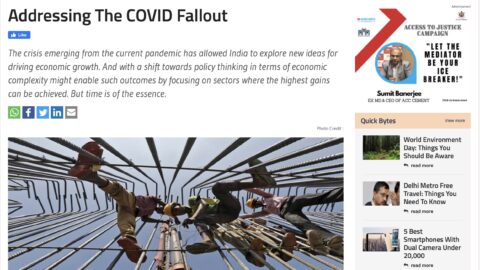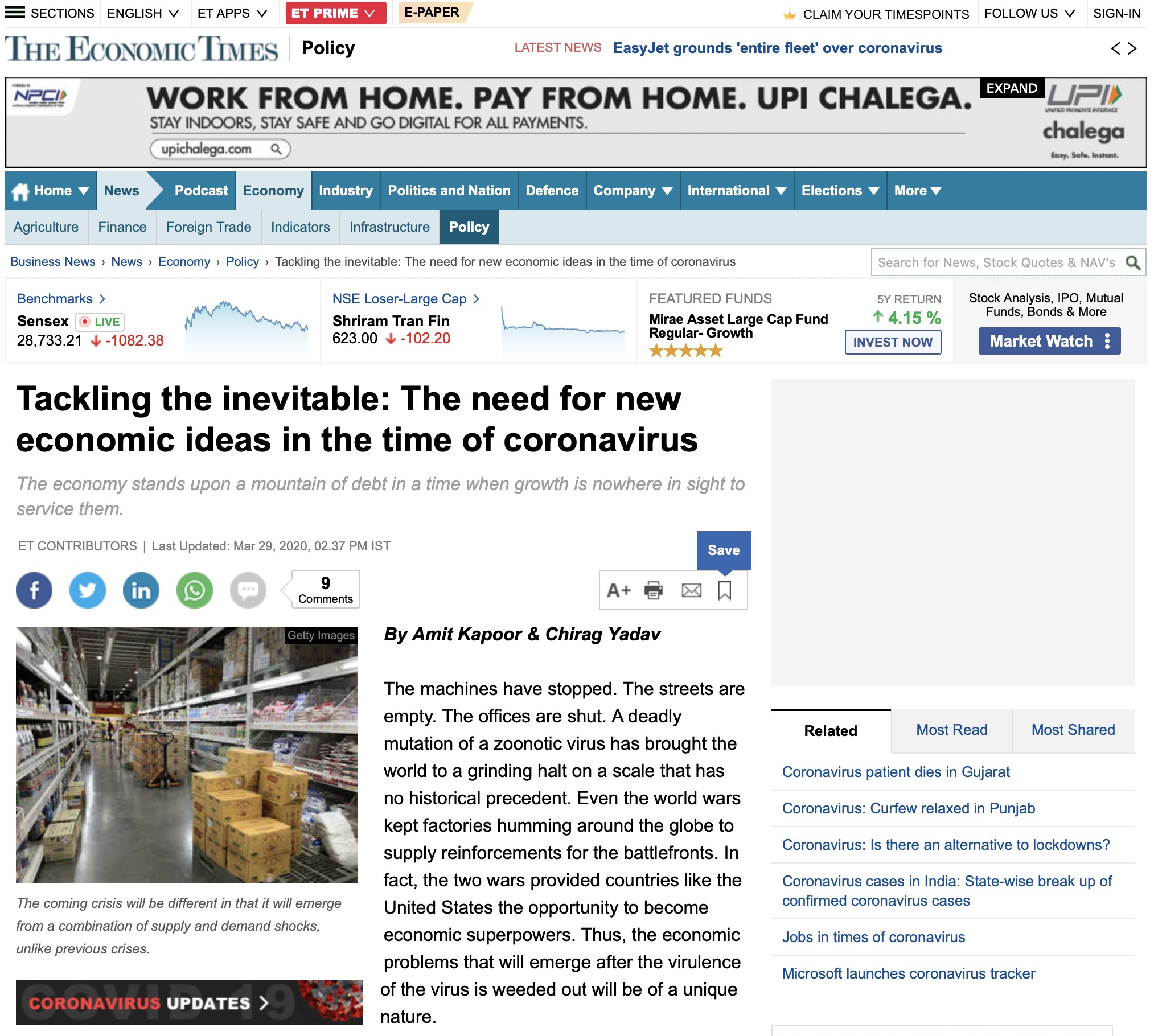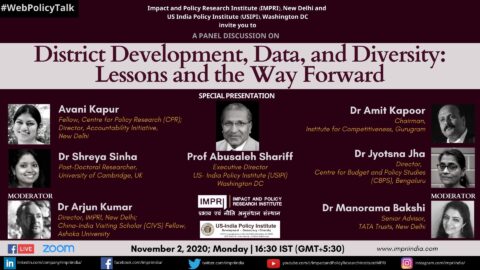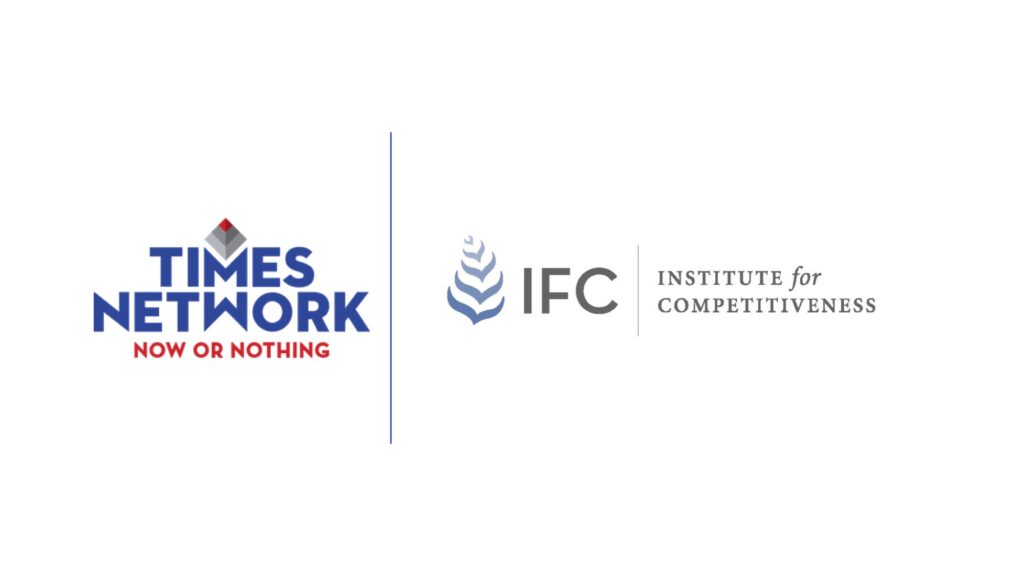Chair, Institute for Competitiveness
The COVID-19 pandemic has completely transformed all our ways of life. A significant part that has been deeply impacted by the pandemic is how businesses operate and cater to consumer requirements. Across the globe, supply chains and “normal” operations of business structures have been severely hit. Unfortunately, Indian businesses have also been greatly affected with large-scale change in employment, labour productivity, consumer spending patterns and operability of supply chains. To support businesses during these times, the Central Government has introduced fiscal stimulus packages along with Reserve Bank of India providing liquidity extension programs, which take forward the spirit of the Bharat Aatmanirbhar Abhiyaan. Along with the evident government support, the domestic socio-political climate has also followed suit by focusing on reducing dependence on China and becoming more self-reliant on the Indian manufacturing sector. These sea-changes warrant a deep understanding of how Indian businesses have been impacted and their long-term response to the effects of the pandemic.
The development of the Business Perception Survey as part of the Times Now India Revival Mission, hence, comes at a crucial time. Extensive rounds of survey carried out during and after the lockdown (April – August) shows a clear picture of how Indian businesses, employees and consumers have moved away from the status quo as a result of the changes brought about by the pandemic.
The findings from the white paper show that businesses are orienting towards the “new normal” with increased focus on work from home measures and changing business structures to meet altered consumer demands. However, definitive changes have been observed during and post lockdown – businesses are moving away from the reduction of short-term costs (such as firing employees) to longer-term business planning actions (by switching to cost-effective raw materials). This positive orientation implies that Indian businesses are slowly but steadily adapting to the altered climate and not only re-imagining their competitive advantages but also their long-term competitiveness strategies.
The Institute for Competitiveness is pleased to support Times Now Network with the knowledge support in this endeavor. We hope that the findings of this white-paper will provide not only better insights for future business-oriented government actions but will also act as a preliminary guide to understand the socio-economic changes brought about by this crisis.























